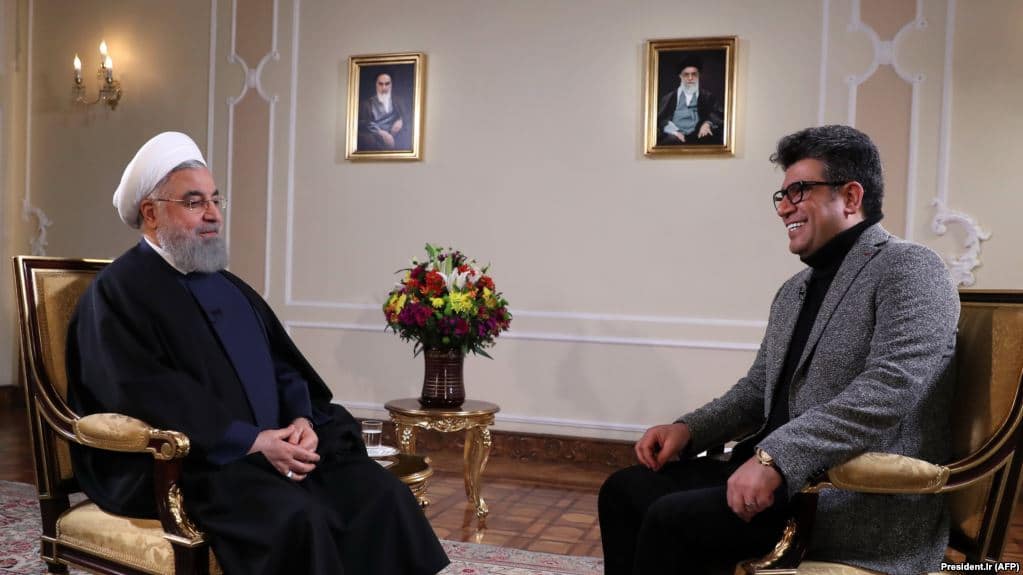Rouhani accepts economic concerns, tries to reassure over currency fall
LATEST
Iran’s President Rouhani has spoken of economic, social, and cultural problems, promising that his Government will address them, in his first televised interview after protests across the country earlier this month.
Rouhani pledged to address grievances in cooperation with other branches of government and with the “guidance” of the Supreme Leader. He said criticism of the government and street protests “within the limits of the law” are acceptable, while warning against “insecurity and unnecessary tensions”.
The President specifically referred to people who lost savings in poorly-regulated banks, “Some defrauded people by empty promises of interest but we will fully solve the problem.”
Demonstrations over economic and political issues escalated from December 28, beginning in Iran’s second city Mashhad and spreading across the Islamic Republic over the next two weeks. Twenty-five people were killed, an estimated 3,700 were detained, and several prisoners died in custody.
Despite the July 2015 nuclear agreement, the Government has struggled for economic recovery amid corruption, mismanagement, and ongoing US sanctions. In a concession to Rouhani, the Supreme Leader has ordered a reduction in the Revolutionary Guards’ hold on economic interests.
Further economic problems have arisen after the demonstrations with the slide of Iran’s currency to a historic low level. The rial dropped to 47,500:1 v. the US dollar last weekend before rebounding to 45,500:1 on Tuesday.
Even at the height of the Ahmadinejad Government’s economic difficulties after protests over the disputed 2009 Presidential election, the rial did not rise above 45,000:1 v. the dollar.
Rouhani said the devaluation is due to interim factors and is temporary: “We tell the public openly that all the country needs, including that needed for import, and what the exporters need and what is needed in the services, the administration will meet them and the fluctuations in the currency rate will not last long.”
Asked about continued restrictions on communications, Rouhani defended his effort to open up Iran’s political and cultural spheres: “You are aware of all the trouble this government has gone through to try to preserve as much access as possible.”
He said the Government had tried to lift restrictions on Twitter but had been blocked by regime officials.
Government: Unemployment Down, Growth Up
Rouhani senior advisor Mohammad Baqer Nobakht has claimed that Iran’s unemployment rate has decreased and the economic growth rate has increased since March 2017.
Nobakht, also the head of the Planning and Budget Organization, noted the unemployment rate has dropped from 12.4% to 11.7% in the current Iranian fiscal year.
He said that Iran’s growth rate is 5.6% since March, with non-oil revenues up 6%.
has stopped a $1.6 billion investment deal in Iran’s steel industry because of Saudi Arabia’s influence.
The Financial Tribune daily reported that POSCO Engineering & Construction signed the agreement with the Iranian steelmaker Pars Kohan Diar Parsian Steel (PKP) in May 2016. POSCO planned to build a steel mill in the Chabahar Free Trade-Industrial Zone in southern Iran.
The daily cited a POSCO announcement, “As relations between Iran and Saudi Arabia rapidly grew worse after a severance of diplomatic ties…outside directors in the board meeting are having negative stances on Iran projects.”
In late 2015, POSCO sold a 38% stake worth $1.1 billion in its engineering and construction division to Saudi Arabia’s Public Investment Fund, giving it the right to appoint two board members.

